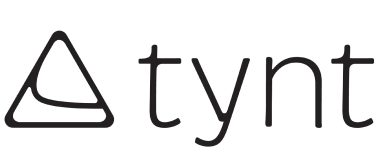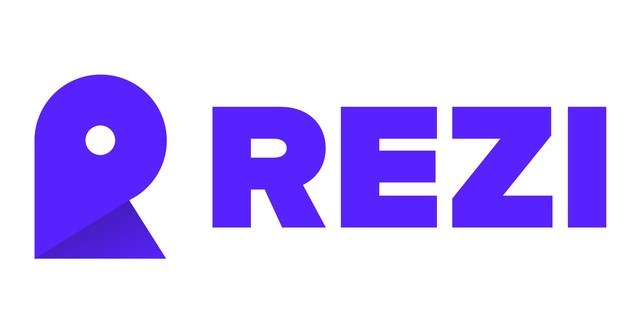Traditional real estate transactions are slow and expensive due to a complex and outdated process.
Sparen, aims to revolutionize the industry by streamlining the process with automation and algorithms, making buying and selling homes faster and cheaper.
In this interview, Sparen’s founder, Paris Dean, delves into the transformative power of its algorithms and outlines a vision for the future where real estate transactions are streamlined, efficient, and accessible globally.
What were the key insights that led you to create Sparen?
I was an asset manager overseeing hundreds of millions of dollars of mostly residential real estate, and a big part of my job was searching for, communicating with, and analyzing information from the various parties required to facilitate transactions such as agents, title companies, insurance companies, inspectors, and contractors.
It was like having to go on a scavenger hunt to find the pieces to a puzzle before you put the puzzle together. At the time my mom was looking to buy a house, and it was twice as complicated: she used Zillow and Redfin to find properties; then she had to talk to lenders to figure out what she could afford to spend because seller’s agents wouldn’t take her seriously without a pre-approval letter; then she had to find a Buyer’s agent to get access to the property, which is a whole other process because not all agents are created equal; and lastly, she had to quickly submit her “highest and best offer” before somebody else beat her to it.
I think she looked at maybe 15 houses and missed out on 12 of them. I got frustrated more times than I can remember because I could not figure out why the whole process was so fragmented and inefficient in 2017 when you could buy a $1M car and have it delivered to your driveway and robots could repair a heart valve. I was looking at the whole process like “Why is it so hard to buy a house?? There’s got to be a better way to do this,” and I couldn’t find one, so I started designing one.
How do Sparen’s algorithms streamline the transaction process?
Real estate transactions are made up of multiple series of processes, each of which requires data to be collected and analyzed. Think of it like baking a cake.
You mix the dry ingredients, then the wet ingredients, then you combine them. The problem with that is that the majority of that data is manually collected and analyzed by people, which means lots of errors. Our algorithms streamline and automate the data collection and analysis for the majority of the steps in real estate transactions, meaning people can get through transactions in a few days compared to weeks and months.
Take underwriting for example. On average, it takes lenders 4-6 weeks and costs about $8-12,000 to underwrite a Buyer whether they’re approved or not, which is then passed down to Buyers. While we don’t lend money, we collect all the same data and analyze it to the same standards in under a minute for less than $2. Less time = more savings.
How do you anticipate Sparen’s platform will impact traditional real estate agents and brokers?
I didn’t build Sparen for agents. I built it to get rid of them because I thought they were the enemy. But after talking to so many of them I realized it wasn’t agents I had a problem with, it was that standard 5 or 6% commission. So rather than dismissing agents entirely, we built an internal marketplace of sorts where buyers and sellers can connect with agents on demand and get help with specific tasks for a flat fee.
For example, if a seller needs help with staging, they can click a button and get connected with an agent who may charge $1,000 for a consultation. So while they’re not making their normal 3%, they’re also not overburdening themselves with every little facet of the transaction, freeing up a significant amount of their time.
Also, that agent may be able to provide that service 2 or 3 times that month. That’s an extra $3,000. In many cases, that would be more than their commission for significantly less work.
What strategic partnerships do you have, and how will they contribute to your growth strategy?
Because real estate is so ubiquitous and is constantly being bought and sold in every sector and industry, there are more applications for Sparen’s technology than any one person can know.
We knew individual buyers and sellers would want to use it, but we’ve gotten attention from a wide variety of Buyers and Sellers, including small flippers who sell 5 properties a year, investment banks, national home builders, the US Government (DoD and HUD), two of the top 5 largest mortgage lenders, and the largest Black-owned Keller Williams brokerage in the country to name a few.
Governor Wes Moore is a fan, and we’ve even been invited to test Sparen’s technology in other countries. Being able to work with and learn from these types of Buyers and Sellers so early on will allow us to 1) build a better product for less money and 2) scale from a few hundred transactions to several thousand transactions in significantly less time.
What are your priorities for your upcoming soft launch, and how do you plan to drive user adoption?
We facilitated more than $100M in transactions with the MVP, so we’re hoping to at least match that with the second launch. By the end of the 12 months after launch – Spring 2025 – we’re expecting to be operational in our target states of Michigan, Maryland/DMV, Florida, and Missouri.
Working with our mentor and advisor network – which includes Dr. George C. Fraser, Michael V. Roberts, MaryAnne Gilmartin, Miller London, Monica Wheat, and members of a D.C.-based networking group named “Hamhock” – and our channel partners will make Sparen available to many more people much faster than we can because their networks and customer bases are significantly larger than ours.
What is your vision for the future of Sparen?
This is a tough one because the more we learn about our technology, the bigger the future becomes. But if I had to choose a number and spin the roulette wheel right now, I’d have to say I want Sparen to be the largest global real estate marketplace.
I want Sparen to be as ubiquitous yet “invisible” as Network Solutions and AWS. Anytime a property is being bought or sold, whether it’s someone in Texas selling their home themselves, an agent selling it in California, or a family buying their home from another family in Nigeria, I want Sparen’s technology powering that transaction.













 Interested in investing in Black founders? Please complete this
Interested in investing in Black founders? Please complete this 

















